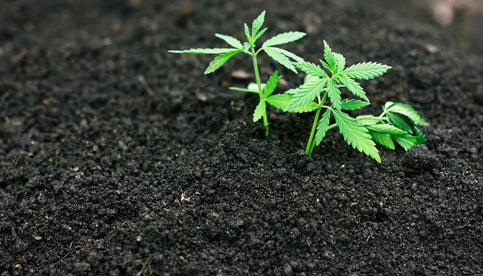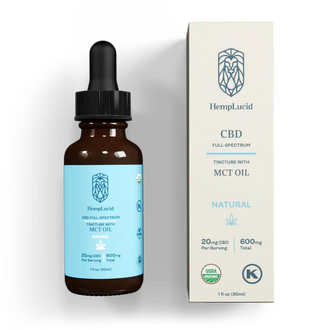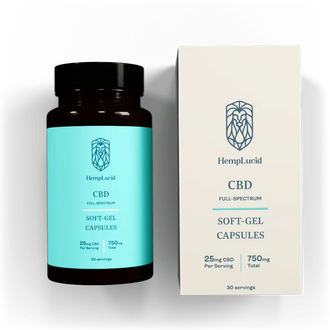
Growing Hemp – Seeds vs Clones
The human race has grown hemp for thousands of years, but modern growing methods aren’t as simple as they used to be. What's the difference between growing seeds vs clones?
The human race has been growing hemp for thousands of years, but modern growing methods aren’t as simple as they used to be.
What Is Hemp?
Hemp is a member of the cannabis plant family that contains only trace amounts of THC (less than 0.3%). The fibers of the hemp plant are used in the creation of thousands of products, including textiles, clothing, and twine.
You can also eat it.
Hemp is widely considered a superfood and is an excellent source of protein, vitamins, essential fatty acids, fiber, and more. It has also helped countless people in the form of Whole-Plant CBD Oil.
There are two common methods for growing hemp.
You can take the good old fashioned “plant the seed in the ground” route—or create identical clones from a mother plant. Many a cannabis connoisseur has debated the advantages of each method. Let’s look at the pros and cons of both.
Growing From The Seed
Growing plants is pretty straightforward, right?
Dig a small hole in the ground, drop a seed in, and make sure the little guy has enough water to grow big and strong. Plant a handful of tomato seeds, get a few tomato plants that each yield the same fruit.
That may be oversimplified, but most people generally agree that’s how growing crops works.
Cannabis is a bit different. Yes, you can plant a seed and it will grow into a cannabis plant, but the resulting genetics of the plant will vary.
Commercial Plant Seeds vs Cannabis Seeds
Commercial plant seeds for vegetable crops are true-bred and genetically stable. This means each seed will grow into the same phenotype and produce effectively identical results.
So, if you plant a true-bred packet of seeds (think tomatoes again) you’ll get a consistent crop.
When planting hemp (cannabis) seeds, it’s difficult to find that same consistency. Most clusters of cannabis seeds can be thought of as diverse siblings of two different parent plants.
Imagine you’re a cannabis plant grown from a seed surrounded by dozens of your siblings. You may look similar and share similar characteristics, but each of your siblings will be unique in some way.
Cannabis is several decades behind other modern plant breeding techniques due in part to a long period of cannabis prohibition. Recent legislation in the agricultural field is moving us in the right direction, but finding a true-breeding genetic line of cannabis is rare, if not impossible, at this point in time.
For now, growing hemp from the seed is inconsistent at best but can produce new genetics through breeding.
Cloned for Consistency
An increasingly popular method of hemp cultivation involves “cloning” the plant.
This method involves taking a cutting from a “mother plant” that will then grow its own root system to become an identical copy of the original.
Cloning cannabis is regarded as the only method that provides reliable consistency across a full harvest. This cloning process allows an identical genetic to grow year after year.
Cuttings are generally taken from the lower branches of the mother plant that look the healthiest. The cuttings are then encouraged to root in water, soil, or rockwool. Roots begin to sprout after one to three weeks, depending on the method used.
The plants are then relocated to mature in fields or other controlled growing environments. This method offers a high level of stability and sustainability with a predictable outcome. While it’s the only way to reach absolute consistency, growing hemp by way of cloning has its own challenges.
Cannabis Seeds vs Clones
Now that you have a brief overview of both methods, let’s break down some of the pros and cons of growing from seeds vs clones.
Seeds
Pros:
- Cannabis plants from seeds grow what’s called a tap-root, which is like an extension of the main stem that grows straight downward. Tap-roots are able to penetrate deeper into the soil for better water access.
- Seeds can be stored for a long time and are easily moved.
- Free from pests, disease, and viruses from the get-go.
- Some growers suggest seed-grown plants are healthier and stronger than cloned plants.
Cons:
- Inconsistent genetics—every plant will contain slightly different concentrations of cannabinoids and other plant compounds.
- It can be difficult to identify the gender of a seed. With the exception of breeding, male plants must be detected and removed from harvest before pollination occurs.
- Seeds take longer to grow and develop into mature plants.
Clones
Pros:
- Consistent and predictable genetics that will lead to an equally consistent product.
- Clones are taken from female plants and gender identification becomes a non-issue.
- Cuttings from a mother plant grow to maturity faster than seed-grown plants.
- Clones will all require the same growing conditions, meaning conditions will not need to be adjusted between harvests.
Cons:
- Clones can carry diseases and pests inherited from the mother plant. Great care must be taken to keep mother plants in good health.
- Instead of growing a hearty tap-root, clones will only grow secondary roots from the stem that branch out laterally.
Growing Hemp – The Best Method for CBD
Which method is better for creating CBD oil?
Some companies may choose to grow from seeds, or pull from multiple harvests with a variety of genetics, potentially leading to inconsistent results in their extracts.
We believe consistency in genetics when growing hemp is absolutely critical to making the best possible CBD products.
This is why HempLucid utilizes hemp cloned from healthy mother plants with a carefully developed set of superior genetics. Cloned plants allow us to offer natural hemp-derived products that provide powerful and consistent benefits with every batch.
Until cannabis breeders can create true-breeding seeds for growing hemp, the cloning method will continue to be necessary for consistent hemp-derived CBD products.

Suggested Products from This Article

 CBD TINCTURE
CBD TINCTURE
Organic Full-Spectrum CBD in MCT Oil - Natural Flavor

 CAPSULES
CAPSULES
Organic Full-Spectrum CBD - SoftGel Capsules

 STRESS RELIEF
STRESS RELIEF



